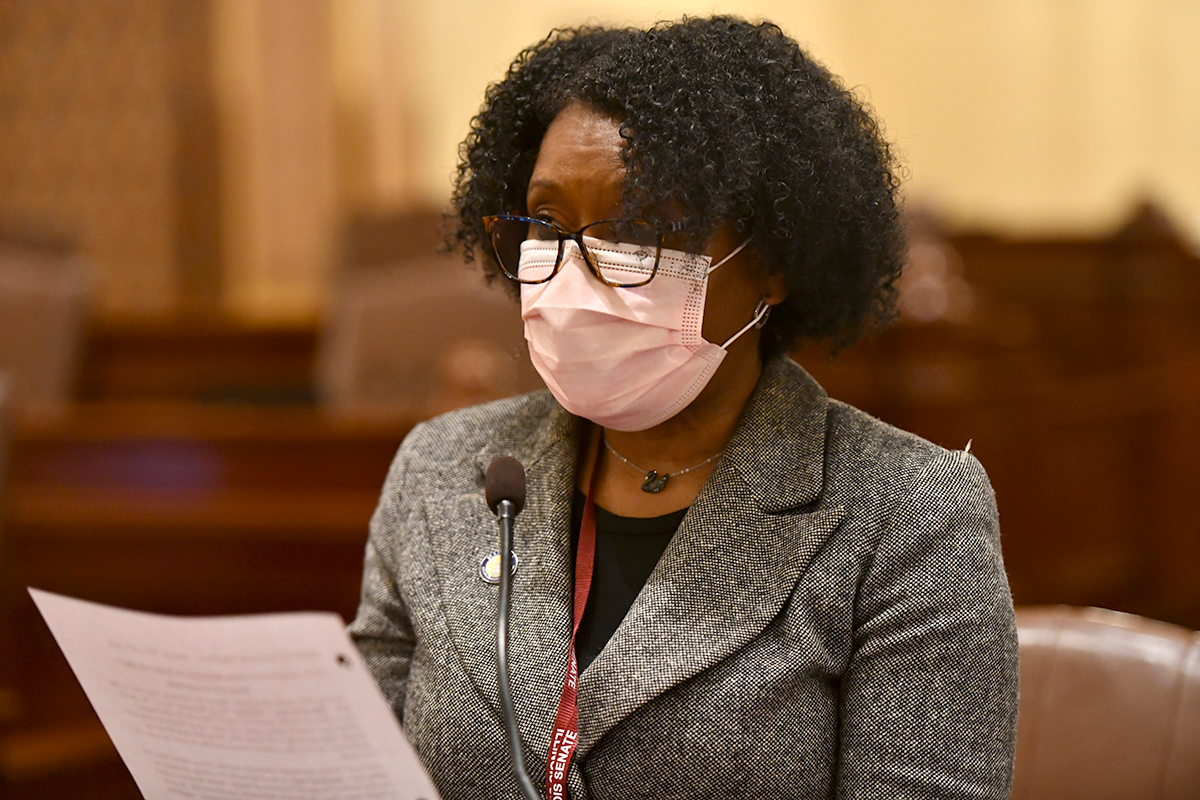 SPRINGFIELD – Following Gov. JB Pritzker’s budget address, State Senator Adriane Johnson (D-Buffalo Grove) released the following statement:
SPRINGFIELD – Following Gov. JB Pritzker’s budget address, State Senator Adriane Johnson (D-Buffalo Grove) released the following statement:
“Older adults, especially those who may live far from family, need a chance to connect with others,” Johnson said. “One simple card can deliver so much power.”
Senator Johnson will collect cards at her district office from now until Feb. 11. The cards will then be donated to a number of long-term care facilities across the district she represents.
People wishing to participate can drop off cards at an outside collection box or mail them to 149 S. Genesee St., Waukegan, IL 60085.
Senator Johnson reminds everyone to maintain social distancing and to wear a mask if choosing to deliver cards in person.

“To offer support to some of our state’s hardest hit industries, this funding was awarded to a diverse, inclusive group of small business owners,” Johnson said. “The local Back to Business grant awardees allow business owners in Cook and Lake counties to retain employees, cover operating expenses and serve patrons effectively as our economy recovers from financial strains.”
The Back to Business grants are awarded by the Illinois Department of Commerce and Economic Opportunity using funds allocated to them by the American Rescue Plan through last year’s state budget. So far – thanks to strong support from Johnson – DCEO has provided $111 million in B2B grants to nearly 3,000 small businesses throughout the state with an emphasis on disproportionately impacted areas.
In the district Johnson represents, 56 businesses in total were awarded grants ranging from $5,000 to $175,000 to help them cover the costs of safely staying open through the ongoing pandemic . Businesses ranged from hotels to restaurants and more.
“Small businesses have been resilient throughout closures, supply chain issues and other pandemic-related burdens,” Johnson said. “We can all help by prioritizing shopping small and utilizing the services our community has.”
Businesses will continue to be notified of their application status throughout the next few weeks until all the funds are exhausted. Visit the DCEO website for more information on the B2B program and view a full list of grantees here.
 WAUKEGAN – Illinois families can avoid COVID-19 tax delays by getting a head start on filing tax returns. State Senator Adriane Johnson (D-Buffalo Grove) is encouraging Illinoisans to take advantage of the 17 day early start, beginning Jan. 24.
WAUKEGAN – Illinois families can avoid COVID-19 tax delays by getting a head start on filing tax returns. State Senator Adriane Johnson (D-Buffalo Grove) is encouraging Illinoisans to take advantage of the 17 day early start, beginning Jan. 24.
“With COVID-19 infections on the rise again, the IRS is warning Illinois families to file their taxes before things become challenging,” Johnson said. “Our communities have been faced with the unimaginable these last few years, so get a head start this new year and don’t be burdened by a missed opportunity.”
The deadline for filling individual tax returns is Monday, April 18. This is three days later than past years. April 18 is also the deadline for filling extension requests, which gives tax payers until Oct. 17 to file tax returns if accepted.
The IRS has given the following tips to avoid minimized tax returns and delays:
“I understand filling taxes can be a headache, but take advantage of Certified Public Accountants for assistance this tax season,” Johnson said. “I hope these tips will make the process easier for the community to reach the deadline for filling taxes and receive tax returns before delays occur.”
The IRS expects taxpayers to receive refunds within 21 days of filling.
Page 50 of 79